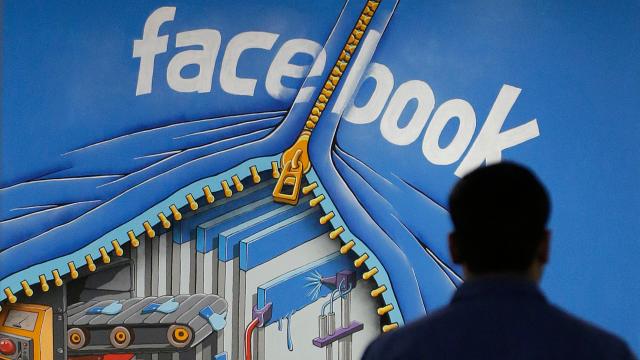Facebook, which earlier this year abandoned plans to build its own passenger jet-sized, solar powered drones to provide internet access in remote stretches of the world, is once again pursuing plans to launch satellites to do the job instead.
According to Freedom of Information Act requests filed by Wired, the Federal Communications Commission has met several times with representatives from Facebook and its confirmed (or suspected) subsidiaries to discuss small, low Earth orbit satellite launches over a period of years dating to 2016. Wired writes:
The emails show that the social network wants to launch Athena, its very own internet satellite, in early 2019. The new device is designed to “efficiently provide broadband access to unserved and underserved areas throughout the world,” according to an application the social network appears to have filed with the FCC under the name PointView Tech LLC.
With the filing, Facebook joins Elon Musk’s SpaceX and Softbank-backed OneWeb, two well-funded organisations working on similar projects. In fact, SpaceX launched the first two of what it hopes will be thousands of its Starlink satellites just this past February.
It’s not the first time Facebook has tried to launch a satellite. In 2016, a SpaceX rocket carrying a Facebook satellite intended to provide connectivity throughout stretches of Africa and estimated at $US95 ($128) million exploded on launch, though that satellite would have orbited much higher and thus provided slower connections than a fleet of low-orbit ones. After that, Facebook’s momentum reportedly stalled. It turned its attention to the solar powered drone project, but recently scrapped plans to build their own aircraft amid a series of less-than-stellar tests.
Athena is just a research project. But if it is a prototype for a fleet, that fleet would almost certainly be intended to help Facebook keep rolling out Internet.org, its free program to provide underserved regions of the world with basic internet access. Facebook announced earlier this year that some 100 million people around the planet are now connected through the program, which connects users to the internet through a suite of apps called Free Basics—which is roughly comparable to a 1990s AOL-style walled garden or, as Gizmodo has written previously, “a stripped-down, walled-off web for poor people.”
Facebook’s official position is that some internet is better than none, but it is conveniently usually the only social media site available through Free Basics without paying additional fees (there isn’t even an email provider). And, of course, onboarding new internet users through Facebook ensures that the company gains an even stronger foothold in emerging markets where for many people, Facebook is for all practical purposes their primary point of engagement with the internet at all. Such concerns led to the service’s ban in India in 2015.
“While we have nothing to share about specific projects at this time, we believe satellite technology will be an important enabler of the next generation of broadband infrastructure, making it possible to bring broadband connectivity to rural regions where internet connectivity is lacking or non-existent,” Facebook told Wired in a statement.
Competitors to Facebook’s approach include Google’s parent company Alphabet, which similarly abandoned a drone project in favour of high-altitude balloons and partnerships with third-party satellite companies, and SpaceX, which has already launched prototypes for its own planned network of thousands of low earth orbit satellites.
[Wired]
